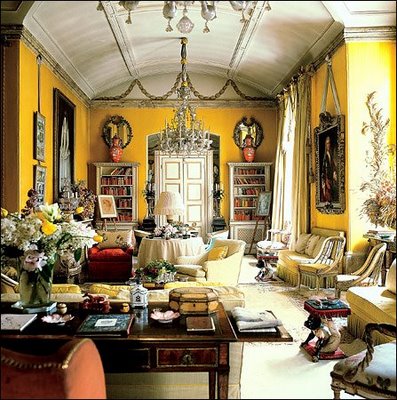For "an ugly child who lived in an ugly age," the quest for beauty was a lifetime objective for this pioneering famous interior designer. This child was none other than Elsie de Wolfe, who was born in 1865, and grew up to be a professional much ahead of her own time. Described as the first lady of interior design, Elsie de Wolfe was by no means traditionally beautiful. However, defining beauty in her own terms, she held that a person could be attractive by staying healthy, dressing tastefully and keeping fit.
De Wolfe began her professional career in theatre as an actress, making her debut on the stage in 1890 as a member of the Empire Stock Company. Later, she also formed her own stock company. Developing a passion towards interior decoration, in 1903 she decided to retire from the stage and launch a career as a professional interior designer.
Elsie lived in an age, the high Victorian styles and trends which did not appeal to her aesthetic sense. Averse to the gloomy decors induced by densely patterned wallpapers, heavy velvet draperies, and dark woodworks of the period, Elsie de Wolfe introduced her unique style which featured light and fresh colours and wallpapers with delicate Chinoiserie prints. Fascinated with the eighteenth century furnishings of France and England, Elsie introduced comfortable chairs with soft upholstery to America, in place of the ornate, uncomfortable Victorian era chairs. Her trips to Europe made her absorb French lifestyle and fashion. Mastering the arts of food, fashion and entertaining, she brought many unique elements of European lifestyle to America.
In 1905, Stanford White, the architect for The Colony Club and a long-time friend, helped de Wolfe secure the commission for its interior design. The building located at 120 Madison Avenue in New York City, became the premier women's social club and is now occupied by the American Academy of Dramatic Arts. Elsie's success in this project was a turning point in her career, which secured for her a number of esteemed clients. As well as being a successful interior designer she also was a successful author on the subject. 'A House in Good Taste' is one of her most famous books on interior design and her autobiography published in 1935 outlines many interesting aspects of her private life.
In 1926 she married a diplomat, Sir Charles Mendl and until her death in 1950, was called Lady Mendl. As a self proclaimed "rebel in an ugly world", she was named 'the best dressed woman in the world' by Paris experts in 1935. Coming from the fashion capital of the world, it was the highest praise one could receive at that time.
Elsie's distinctive philosophy of interior design is evident from her words "I opened the doors and windows of America and let the air and sunshine come in". Apart from interior design, it is claimed she introduced innovative ideas such as cocktail parties and small intimate dinner parties to American society.






